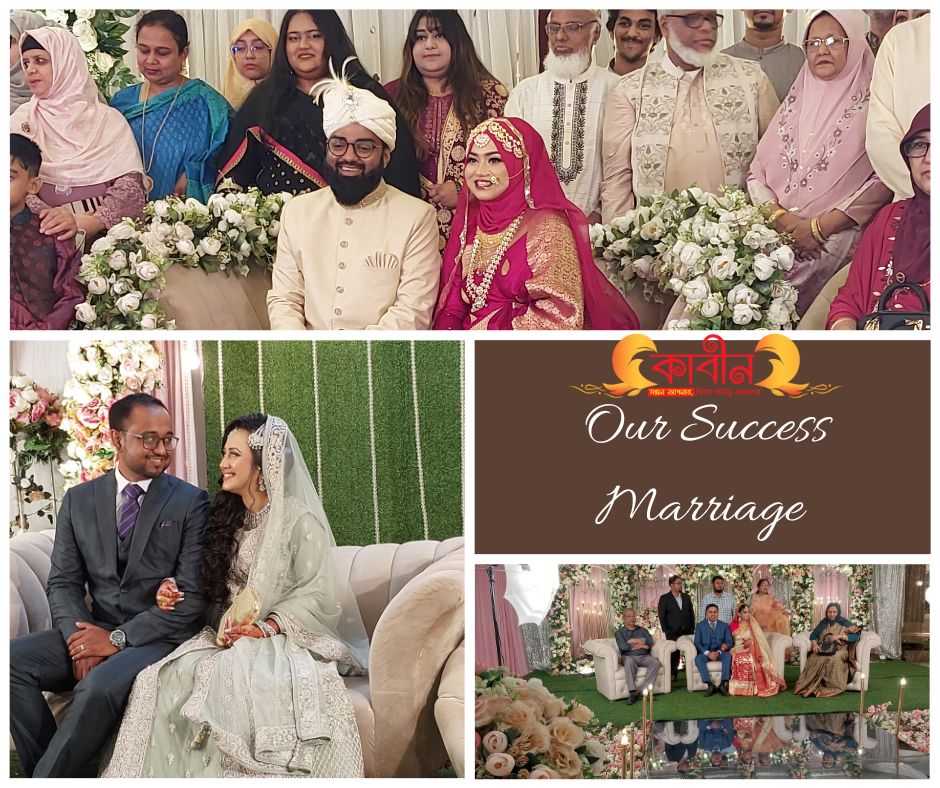Why is marriage so important?
Why Marriage is So Important: A Comprehensive Analysis
Marriage is one of the most enduring institutions in human society, transcending cultures, religions, and time. It serves as the foundation for families and plays a crucial role in the social, emotional, and economic structure of communities. The importance of marriage can be understood through various lenses, including its cultural, psychological, economic, and social significance. This essay explores these aspects in detail, emphasizing why marriage remains a cornerstone of human life.
-
Cultural and Historical Significance of Marriage
Marriage has been a central institution in virtually every culture throughout history. Its significance is deeply embedded in traditions, religious practices, and societal norms. Historically, marriage was not only a union between two individuals but also a contract between families, often designed to solidify alliances, transfer property, and ensure social stability.
In many cultures, marriage is seen as a rite of passage, marking the transition from youth to adulthood. It is a social acknowledgment of maturity, responsibility, and the readiness to contribute to society by raising the next generation. For instance, in ancient Rome, marriage was regarded as a means of producing legitimate heirs, which was crucial for maintaining the family lineage and inheritance.
In many religious traditions, marriage is considered a sacred institution. For example, in Christianity, marriage is viewed as a covenant before God, symbolizing the union between Christ and the Church. In Hinduism, marriage is seen as a sacred duty and a vital part of dharma (moral and ethical responsibilities). These religious perspectives highlight the spiritual dimension of marriage, where the union is not just a social contract but also a spiritual commitment.
-
Psychological and Emotional Benefits of Marriage
Marriage provides a unique platform for emotional and psychological growth. The bond between married partners fosters a deep sense of companionship, love, and security. This relationship is often a source of emotional support, helping individuals navigate the challenges of life.

Research consistently shows that married individuals tend to experience lower levels of stress and anxiety compared to their unmarried counterparts. This can be attributed to the emotional support system that marriage provides. Having a partner to share one’s life with can alleviate the pressures of daily life, leading to improved mental health.
Moreover, marriage offers a sense of belonging and identity. Being part of a committed relationship can enhance one’s self-esteem and provide a sense of purpose. The emotional intimacy that marriage fosters is a critical factor in personal well-being. The trust and understanding that develop in a long-term relationship create a safe space for individuals to express their vulnerabilities and grow together.
In addition to emotional support, marriage also promotes psychological resilience. Studies have shown that married couples often have a stronger sense of purpose and are better equipped to handle life’s adversities. The partnership in marriage allows individuals to draw strength from each other, making it easier to overcome obstacles and recover from setbacks.
-
Economic Stability and Financial Benefits of Marriage
Marriage has significant economic implications for individuals and society. Economically, marriage often leads to greater financial stability and prosperity. Married couples tend to have higher incomes, better savings, and greater wealth accumulation than their unmarried counterparts.
One of the reasons for this economic advantage is the pooling of resources. When two individuals marry, they combine their financial resources, which can lead to increased economic security. This pooling of resources allows for better investment opportunities, savings, and the ability to purchase assets like homes. Married couples also benefit from economies of scale, as they can share the costs of living, such as housing, utilities, and groceries.
Furthermore, marriage often leads to better financial planning and decision-making. Couples are more likely to engage in long-term financial planning, such as saving for retirement, buying life insurance, and investing in education. This financial discipline can lead to greater economic stability and security over time.
In addition to personal financial benefits, marriage also has positive effects on the economy. Married individuals are more likely to engage in economic activities that contribute to the overall economy, such as purchasing homes, investing in education, and participating in the workforce. This economic activity can have a positive impact on local communities and the broader economy.
-
Social and Community Benefits of Marriage
Marriage plays a crucial role in the social fabric of communities. It serves as the foundation for families, which are the basic units of society. Families provide a nurturing environment for children, instilling values, and teaching social norms.
In many societies, marriage is seen as a stabilizing force. It encourages social cohesion and community engagement. Married couples are more likely to participate in community activities, volunteer, and contribute to the welfare of their communities. This sense of social responsibility can have a positive impact on the overall well-being of society.
Moreover, marriage fosters social stability by promoting long-term relationships and reducing social isolation. Married individuals are less likely to experience loneliness and social isolation, which are significant risk factors for mental and physical health issues. The social networks that develop around married couples, including friendships and extended family relationships, provide additional layers of support and connection.
Marriage also plays a role in reducing social inequalities. By promoting stable family structures, marriage can help mitigate some of the social and economic disparities that exist in society. For example, children raised in stable, two-parent households are more likely to succeed academically and economically, breaking the cycle of poverty and disadvantage.
-
Raising the Next Generation
One of the most important functions of marriage is the raising of children. Marriage provides a stable and supportive environment for child-rearing, which is essential for the healthy development of children. Research shows that children raised in stable, two-parent households tend to have better outcomes in terms of education, emotional well-being, and social behavior.
Marriage offers a framework for parenting that includes shared responsibilities and roles. In a traditional marriage, both parents contribute to the upbringing of their children, providing a balanced environment where children can thrive. This division of labor allows for more effective parenting, as each parent can focus on different aspects of child-rearing, such as discipline, education, and emotional support.
Furthermore, marriage provides a model for healthy relationships. Children raised by married parents learn about commitment, cooperation, and communication, which are essential skills for forming their relationships in the future. The stability and security that marriage provides are crucial for children’s emotional development, helping them to develop a strong sense of self-worth and confidence.
In addition to the direct benefits to children, marriage also has a broader societal impact by contributing to the continuity of cultural values and traditions. Through marriage, cultural and religious practices are passed down to the next generation, ensuring the preservation of cultural heritage and social norms.
-
The Role of Marriage in Personal Growth and Fulfillment
Marriage offers a unique opportunity for personal growth and fulfillment. The partnership between spouses encourages mutual support, self-improvement, and the pursuit of shared goals. This collaboration can lead to personal development and a deeper understanding of oneself and one’s partner.
In a healthy marriage, partners challenge each other to grow and evolve. They provide constructive feedback, encouragement, and support, helping each other overcome personal limitations and achieve their potential. This process of mutual growth can lead to a more fulfilling and meaningful life.
Moreover, marriage offers the opportunity for individuals to experience unconditional love and acceptance. This deep emotional connection can be a source of great joy and satisfaction. The sense of being loved and valued for who you are is one of the most profound aspects of marriage, contributing to overall happiness and well-being.
In addition to personal growth, marriage also provides a sense of purpose and direction. The shared goals and responsibilities that come with marriage, such as raising a family, building a home, and contributing to the community, give life meaning and direction. This sense of purpose can lead to a more satisfying and fulfilling life.
-
Challenges and Evolving Perspectives on Marriage
While marriage offers numerous benefits, it is not without challenges. The institution of marriage has evolved over time, and modern marriages face different challenges compared to those of the past. Factors such as changing gender roles, economic pressures, and shifting societal norms have all impacted the nature of marriage.
One of the significant challenges facing modern marriages is the changing role of women in society. As women have gained more economic independence and social equality, traditional gender roles within marriage have shifted. This has led to new dynamics in marital relationships, where both partners may share responsibilities such as earning income and raising children. While these changes have brought about greater equality, they have also introduced new challenges, such as balancing work and family life.
Economic pressures also play a significant role in modern marriages. The rising cost of living, education, and healthcare has put financial stress on many couples, leading to increased tension and conflict within marriages. Economic instability can also delay marriage, as individuals may choose to focus on their careers or financial security before committing to marriage.
In addition to these challenges, societal attitudes toward marriage have also evolved. There is greater acceptance of diverse relationship forms, such as cohabitation, same-sex marriage, and single parenthood. These changes reflect a broader shift in societal values, where individual autonomy and personal fulfillment are increasingly prioritized over traditional norms.
Despite these challenges, marriage remains an important institution in modern society. The enduring significance of marriage lies in its ability to adapt to changing circumstances while continuing to provide emotional, social, and economic benefits to individuals and society.
-
The Future of Marriage
As society continues to evolve, so too will the institution of marriage. The future of marriage will likely be shaped by ongoing changes in gender roles, economic conditions, and societal values. However, the core principles of marriage—commitment, partnership, and mutual support—will likely remain central to its significance.
One possible trend in the future of marriage is the increasing emphasis on equality and partnership. As gender roles continue to evolve, marriages may become more egalitarian, with both partners sharing responsibilities and decision-making equally. This shift could lead to more balanced and fulfilling relationships, where both partners feel valued and respected.
Another trend that may shape the future of marriage is the increasing focus on individual fulfillment and personal growth. As society places greater emphasis on personal autonomy and self-actualization, marriages may become more centered on personal development and mutual support. This could lead to a redefinition of marriage, where the partnership is seen as a means of achieving personal goals and aspirations.
Finally, the future of marriage will likely be influenced by changing economic conditions. As economic pressures continue to impact individuals and families, marriages may adapt by placing greater emphasis on financial planning, economic security, and resource sharing. This could lead to new forms of marital arrangements, such as cohabitation or prenuptial agreements, designed to address the economic realities of modern life. Marriage, one of humanity’s oldest institutions, has undergone significant transformations throughout history, shaped by cultural, economic, and social forces. As we look to the future, marriage is poised to evolve further, influenced by changing societal values, technological advancements, and shifts in gender roles. This exploration delves into the possible future of marriage, considering emerging trends, challenges, and the ways in which this institution might adapt to remain relevant in an ever-changing world.
Changing Gender Roles and Equality
One of the most significant factors shaping the future of marriage is the ongoing shift in gender roles. Historically, marriage was often defined by traditional gender roles, with men typically serving as breadwinners and women as homemakers. However, the rise of gender equality has challenged these traditional roles, leading to a more egalitarian approach to marriage.
In the future, marriages are likely to become even more egalitarian, with both partners sharing responsibilities equally, whether in terms of income generation, household chores, or child-rearing. This shift is already evident in many modern marriages, where dual-income households are becoming the norm, and both partners contribute to both the financial and domestic spheres.
This change in gender roles is also likely to influence how marital success is defined. In the past, a successful marriage was often judged by its longevity and adherence to traditional roles. In the future, however, success may be measured by the quality of the partnership, mutual respect, and the ability to adapt to changing circumstances.
Economic Factors and Financial Pressures
Economic factors have always played a crucial role in marriage, influencing decisions about when to marry, how to manage finances, and even whether to marry at all. As economic conditions continue to evolve, so too will the financial dynamics of marriage.
Rising costs of living, student debt, and economic uncertainty are already leading many couples to delay marriage or forgo it altogether. In the future, these economic pressures may continue to shape marriage patterns. Couples might prioritize financial stability before tying the knot, leading to later marriages and a potential increase in cohabitation as a precursor to marriage.
Moreover, the future of marriage may see a greater emphasis on financial planning and transparency. Prenuptial agreements, once considered taboo, are becoming more common as couples seek to protect their assets and ensure financial security. This trend may continue, with prenuptial agreements evolving to address new economic realities, such as the sharing of digital assets or the financial implications of remote work.
Technological Advancements and Their Impact
Technology is transforming nearly every aspect of life, and marriage is no exception. From online dating platforms that help people find partners to apps that assist with communication and conflict resolution, technology is playing an increasingly significant role in how relationships are formed and maintained.
In the future, technology may further reshape marriage in several ways. Virtual and augmented reality could offer new ways for couples to connect and share experiences, especially in long-distance relationships. Artificial intelligence (AI) might provide personalized relationship advice, helping couples navigate challenges and improve communication.
Moreover, as technology continues to advance, it may also raise new ethical and legal questions about marriage. For example, how will society handle relationships involving AI or virtual partners? What legal rights will people have in such relationships? These are questions that future generations may need to address as technology continues to blur the lines between the physical and digital worlds.
Diverse Forms of Marriage and Family Structures
As society becomes more accepting of diverse lifestyles and relationships, the definition of marriage is expanding to include a broader range of family structures. Same-sex marriage, once a highly controversial issue, is now legal in many parts of the world, reflecting a growing recognition of diverse sexual orientations and family forms.
In the future, marriage may continue to evolve to include a wider array of relationship types. Polyamorous relationships, where individuals have consensual, romantic relationships with multiple partners, are gaining visibility and could become more mainstream. Legal recognition of such relationships may follow, challenging the traditional notion of marriage as a union between just two people.
Conclusion
Marriage is a multifaceted institution that plays a crucial role in the lives of individuals and the functioning of society. Its importance is evident in its cultural, psychological, economic, and social dimensions. Despite the challenges and changes that marriage has faced over time, it remains a vital institution that provides stability, emotional support, and a sense of purpose.
As society continues to evolve, marriage will undoubtedly continue to adapt to new circumstances and challenges. However, its core principles of commitment, partnership, and mutual support will likely remain central to its significance. Ultimately, marriage is important because it serves as a foundation for families, a source of personal growth and fulfillment, and a pillar of social stability.
Top 3 Bangladeshi Matrimony Sites
Trusted Marriage Media in Bangladesh
আপনি যদি বিয়ের ব্যাপারে সিরিয়াস হয়ে থাকেন তবে
লিংকে ক্লিক করে ফ্রী রেজিষ্ট্রেশন করুন
অথবা বিস্তারিত জানতেঃ
Gmail:kabinbd4@gmail.com
01711462618 এ কল করুন ২৪/৭ সার্ভিস
























